Holy Use of Initiative, Batman! The super-heroic Insp. Darren Watson (Batman) and PC Abdi Osman (Robin).
Today’s piece was inspired by this story. To creep up on their suspects, two Met officers disguised themselves as Batman and Robin. POW! BAM! YOU DON’T HAVE TO SAY ANYTHING (etc). Yes, it’s an amusing story and great publicity.
It also, I think, represents a ray of hope. So, bravo. Besides, I can’t remember the last time I saw an inspector handling an exhibit bag.
Now, I’m not suggesting British police routinely adopt superhero cosplay (although there’s probably a superintendent now pondering the idea. Or the College of Policing’s drafting an official superhero cosplay APP). What I am saying is freeing local police to implement novel strategies is the ONLY way resource-strapped forces are going to deliver anything like impactful policing in the future.
What Insp. Watson and PC Osman did was unusual. Which raises the question; what prevents more coppers from dressing up as superheroes so they can successfully ambush scrotes? Or setting up sting operations? It’s because British policing is now timid yet bullying, obsessed with virtue-signalling but uninterested in crime-fighting.
We could reverse this situation, if we chose. Which is why the title of this piece deliberately misquotes Bowie; the police could be heroes every day.
I’ve written about how we ended up in this mess. I’ve examined the death of police discretion here. The reasons why police investigate so much pointless bullshit here. Yes, including ‘hate crime’ silliness like this. The Blob in charge of policing? I’ve got you covered. And here’s how the police were kneecapped by the Tories, circa 2012.
The short version? Policing was broken by crapulous, penny-pinching, know-nothings. It’s infected with chronic mediocrity and risk-aversion. The wider legal and criminal justice system is hilariously dysfunctional. Senior police officers often have limited imaginations; the average NPCC drone makes a single-cell amoeba look like JRR Tolkien.
This is why Insp. Watson and PC Osman remind me of Harry Tuttle, the guerrilla plumber played by Robert De Niro in ‘Brazil.’ Tuttle’s determined to fix things, despite living in a dystopian regime strangled by red tape. A regime where achieving anything independently is deemed a crime. Even something as simple as mending the central heating.
Yes, ‘Brazil’ reminds me of modern policing. I’m sure there are senior officers who, if they saw it, would consider it a training film.
Harry Tuttle; Commando. Guerrilla. Revolutionary… Heating engineer.
So here’s my suggestion - unleash the ‘dogs of law.’ Have a towering, blazing, glorious bonfire of regulations. Create a criminal justice system version of ‘Doge’. Experiment with Free Forces, loosely inspired by Free Schools. Recruit, nurture, develop and promote imaginative officers. Then let them police. Performance would improve. So would public satisfaction (the real public, not the media-confected ‘ugh, why didn’t you watch Adolescence?’ hivemind). Disassemble the clerisy of bleeding heart quangos and reform our handwringing legal establishment.
Oh, and if that all sounds a bit gammony or edgy for your next dinner party convo, here’s another reason: It would be cheaper than the model we currently suffer. Much, MUCH cheaper.
I bet I’ve got their attention now.
This model of policing existed, once. Was it perfect? Hell, no. Was it better than what we have today?
Oh yes.
So let’s jump into my time machine again, the one without rose-tinted windows. Here’s a piece I wrote about the efficacy of small unit policing in the 1990s. I’ll summarise: the local robbery team I served on hunted down an escaped convict. He was a proper villain - he’d shot a policeman during a botched robbery. We did some old-fashioned detective work. We plotted up a couple of addresses. Then, we discovered our escaped convict was signing on for benefits. Our DS hatched a cunning plan, whereby a colleague and I pretended to be clerks at the local dole office. We arranged for the escapee to be called in ‘for a chat’, whereupon we jumped him. We also arrested his girlfriend for harbouring a fugitive.
This off-the-cuff sting operation took a single day. There was very little paperwork. There were no firearms, surveillance authorities, risk assessments or riot police kicking in doors. There was nobody involved over the rank of detective sergeant (although, as a courtesy, we kept the DI updated). The whole job involved five or maybe six plainclothes officers. Oh, and nobody was injured either.
This wasn’t remotely unusual. I could tell many such stories of spur-of-the-moment, commonsense police work.
By the time I left?
A job like that would have been an insufferable, three-ring circus. A whirligig of arse-covering, bullshit and specialist unit dick-swinging.
There were places in the Job which fostered a spirit of ambition. I remember being summoned to a meeting on the 17th Floor at New Scotland Yard, to discuss how best to capture a high-profile suspect. Intelligence suggested he was on a passenger ship scheduled to enter British waters. I’d previously been lurking in the Buckingham on Petty France (like I said, it was the 90s), so I was reasonably refreshed. So I found myself wondering aloud if we might ask the Royal Navy if they’d lend us a frigate? We could intercept the suspect at sea, right? Our superintendent said he liked the idea.
Someone made a phone call to the MOD. The Navy, I’m told, thought helping the police on the high seas was a hoot. We were chuffed at the prospect of going on a warship, until it transpired our suspect changed his travel plans. All was not lost, though. Cruelly denied the opportunity to mess about on boats, I ended up back in the Buckingham for another pint.
My point?
The police lost its cojones. Its minerals. Then, at an organisational and societal level, we simply lost the will. I’ll say it again - because it’s been said before - this isn’t just a case of a grumpy old bastard moaning ‘back in my day.’ Inspector Watson and PC Osman’s Batman caper offers ample proof the flame still burns. So I’ll say it again.
We lost the will.
It isn’t the people. It’s the systems and processes. Throughputs now matter more than outputs. Optics are more important than delivery. The Blob blatantly gerrymandered police entry and promotion processes. The Home Office reigns supreme; the civil service’s declinist tendencies now permeates policing.
The 1990s: hello, is that the Admiralty? Would you mind awfully if we borrowed your frigate?
What killed police initiative?
1. Risk aversion
I don’t necessarily mean risk management models, regimes and paperwork. Sure, it’s an issue. And yes, they provide ever-growing empires for arse-polishers to establish. But there’s more too it than that. It’s a culture. The public are to blame too. And the Media. All of us. Even trivial police mishaps have become ‘content’, potentially lucrative outrage-generating, click-bait driven micro-scandals.
Furthermore, the public’s been infantilised into thinking the world should be safe and clean and perfect, possibly because they spend too much time viewing it through their telephones. Have you noticed, when something awful happens nowadays, more people film the incident than intervene?
The police, whose job is to get involved when something awful happens, should be applauded for taking risks. When they act in good faith, they should be given the benefit of the doubt. But when they make mistakes because they were stupid or lazy or dishonest? Punish them.
Attitudinal change requires education and political will. It requires that trickiest of things, cultural change. It makes me laugh when people decide to single out ‘police culture’ from scrutiny, as if coppers are miraculously isolated from the faults of the society it polices.
Change also requires inspiring leadership. Any politician thinking about how to achieve this should know the charlatans in charge won’t relinquish power without either (a) a savage, to-the-death fight, or (b) being offered lots of promotions, medals, honours and other baubles. The second option is probably easier.
Mind you, we could always try grassroots attitudinal change. How about granular localised policing, led by operational officers? Not cosplaying administrators-in-uniform. Just cut the charlatans out of the loop by giving my ‘Free Forces’ experiment a try.
2. Overreliance on performance management
What gets measured gets managed — even when it’s pointless to measure and manage it, and even if it harms the purpose of the organization to do so.
He who polices everything, polices nothing.
Me, channelling Frederick the Great
Management is necessary. There, I’ve said it. Performance management is necessary. There, I’ve said that too. Both, however, are like salt in the soup. And the soup now tastes like seawater.
Since the Blairite Reformation, circa 1997 (which was adopted by the Tories lock, stock and barrel), policing metamorphosised into something woeful; a dysfunctional social service with a crumbling investigative wing attached. It operates via a strange pseudo-philosophy, one combining critical theory with MBA-style baloney. As I’ve written before, it’s like North Korea, but run by David Brent.
This is why two coppers smuggling superhero costumes past the Met’s management algorithms, problem profiles and risk assessments should be seen as nothing less than an act of resistance.
A recurring example is reactive versus proactive policing. Senior officers, blinded by daily, weekly and monthly ‘CompStat’ style performance metrics, are unable to see the wood for the trees. For example, imagine your patch is plagued by burglaries. The dogs on the street know 50% of them are committed by three junkies, who buy their gear at 23 Acacia Avenue from a bloke called Bob.
Do you;
(a) Run high-visibility reassurance patrols on impacted areas during periods of high offending, making sure it’s all on Instagram for good measure?
Or;
(b) Put surveillance on the junkies and catch them in the act? Then you raid the crack house and nick Bob. You expend as much blood, treasure and political capital possible with the local CPS to get the malcontents banged-up. While they are in prison, getting to know the female staff better, the burglary rate will tumble.
By the way, if any senior officers are reading? We’re the police. We don’t concern ourselves with drugs-as-a-healthcare-issue. That’s someone else’s job, not ours. We concern ourselves with stopping-people’s-stuff-getting-nicked issues. Right?
Anyhow, you might want to try both strategies. Trust me, though, too many bosses will go for ‘a’. Why? It’s easy. It’s safe. Furthermore, ‘b’ is a nightmare. Finances are tight. Surveillance teams aren’t interested in burglars and the central squads won’t allow mere neighbourhood teams to be sneaky. Even more risk! You wouldn’t believe the lack of resources, training and operational capability in local policing (then again, you probably would).
If you asked a local sergeant what would he or she would do? They’d go for ‘b’ with a bit of ‘a’ on the side. And if you trained his or her team in basic foot surveillance and lent them cameras and an OP van? They’d almost certainly put cats among pigeons. Yes, you might have a temporary crime spike while they were watching and waiting…
Oh, a crime spike, you say? That would FUCK the monthly stats. And the superintendent wants to be a chief superintendent. So they try to shunt the proactive job up to a squad. Who are too busy, because they’ve got stabbings and shootings and stuff to deal with. Do you see what I mean? I’ll say it again;
He who polices everything, polices nothing.
We need to fundamentally reimagine what ‘performance’ means.
If this is ‘Performance’, I want my council tax refunded.
How would a ‘Free Force’ be any different?
There’s an obvious, but entirely fair, response to critics like me. What would you do, then?
Well, I’m glad you asked.
Yes, righteous anger occasionally fuels this Substack. It’s also fuels my thinking on how we might do better, because I think policing’s important. Watching what’s happened to the service over the past decade or so? It’s like making the late, great Brian Sewell watch hoodies spray graffiti all over the National Gallery.
My suggestion is relatively simple. I make no apologies for recycling a piece of this article, as newer readers might not have seen it:
Let’s choose two medium-sized police forces. They should be of comparable size, population, ethnic and geographical composition. Say, for example, Avon and Somerset and Lancashire.
The first police force (Force ‘A’) will be run strictly by current diktat, with a locally-voted PCC (probably in hoc to one of the big political parties). All Force ‘A’ senior officers will go through the usual NPCC / College of Policing / Home Office grooming processes. This elite command team will sign up to the experiment in good faith. They will follow all mandated accredited professional practice, rules, regulations, procedures on EVERYTHING including recruitment to every rank. It will be funded fairly and appropriately (as will the other force in the experiment). It will be restructured, run and overseen as a model police service, a showcase for progressive modern British law enforcement.
The second police force (Force ‘B’) will be a ‘Free Force’. It will be given latitude to freely interpret all of the above rules and regulations. It won’t have a PCC, but a local police authority as in days of yore. The Chief Constable - who would not necessarily have completed any nationally-accredited senior staff courses - will be appointed by an independent group who act as the project’s arbiters. Force ‘B’ can structure every division, police station, department and unit as it sees fit. It may establish novel service-level agreements with local authorities and Crown Prosecutors. It can hire whatever police officers and staff it likes, as long as they meet national vetting standards. It will have no staff associations with any political agendas. It can set its own pay and conditions for ALL RANKS.
We run both forces for three years. At the end, a bipartisan, independent body takes stock of the results. Now, I’m not a gambling man. Still, I think I know which force criminals would hate, and the law-abiding public would prefer.
The UK is heading towards its own half-arse version of a tiered, continental policing model. The Met, for example, will lose counterterrorism and become a truly local constabulary. The underperforming but seemingly-bulletproof NCA will grow. CT will become a national agency, unless it’s folded into the NCA too. Whereupon the UK Government will have its very own secret police to play with.
That leaves the workaday uniformed police, the people who fight the most crime. The accountable police. So, make local forces truly capable again. Devolve all specialist functions to the lowest possible level - ideally the Basic Command Unit (BCU). Let local leaders run meaningful, impactive operations. Let local commanders command.
While we’re at it, introduce hybrid employment models, with officers allowed to transfer between reserve and regular service. Don’t worry about one-size-fitting all. Why should the police in John O’Groats be identikit to those in Land’s End? Make policing impactful and rewarding - you’ll recruit and retain a better standard of police officer.
And, yes, it would be cheaper. Less regulation. Less dead wood. Leaner, more agile systems. Skint police forces, by virtue of circumstance, must be imaginative police forces - if we let them. Future forces should operate like autonomous military units, reliant on cheap technology, their initiative and local engagement / media management ops. They can’t afford to be bogged down by protocol and dogma; modern communications technology, transport and immigration patterns are like quicksilver. The police are tortoises by comparison.
Yes, there should be national databases, protocols and interoperability. However, interoperability should never, ever, be an excuse for diktat, empire-building or arse-covering. Which it is now. Seriously.
So, a clarion call. It’s time for imagination. Romanticism, even. For superheroes. When the going gets tough, Britain has a glorious history of gloriously unorthodox solutions to seemingly intractable problems.
The day for such solutions, I would suggest, is now.
If we aren’t careful, we’ll soon need a Ministry of Ungentlemanly Policing. I’d join in a heartbeat.

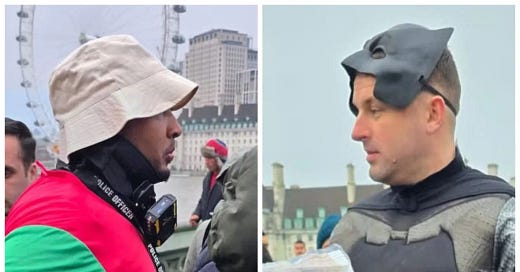



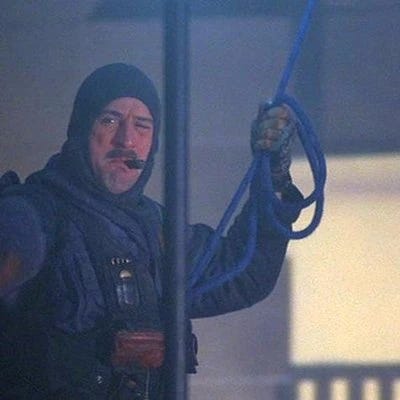
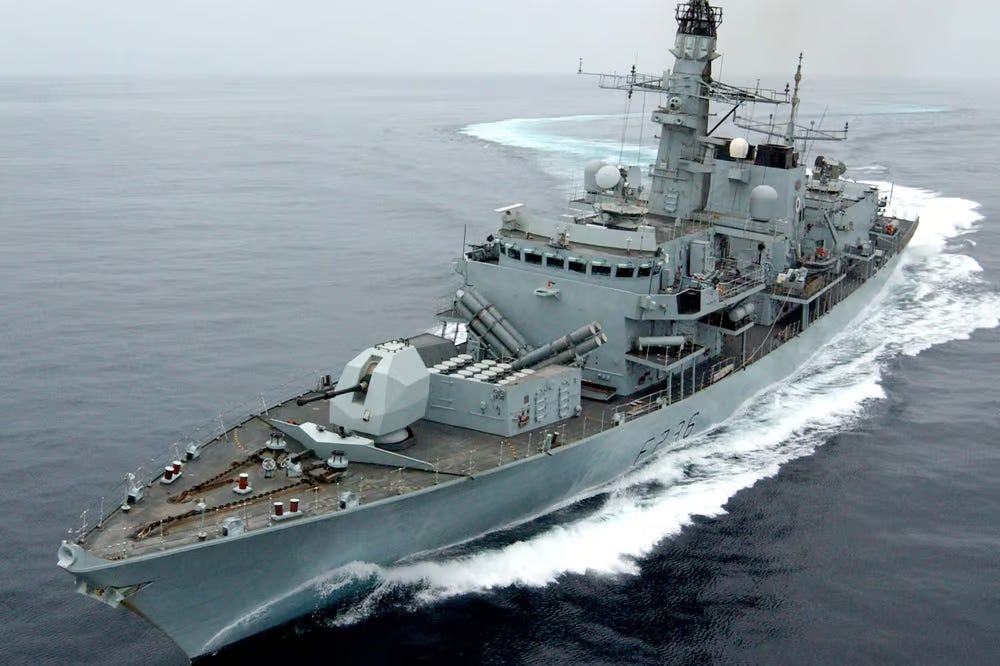
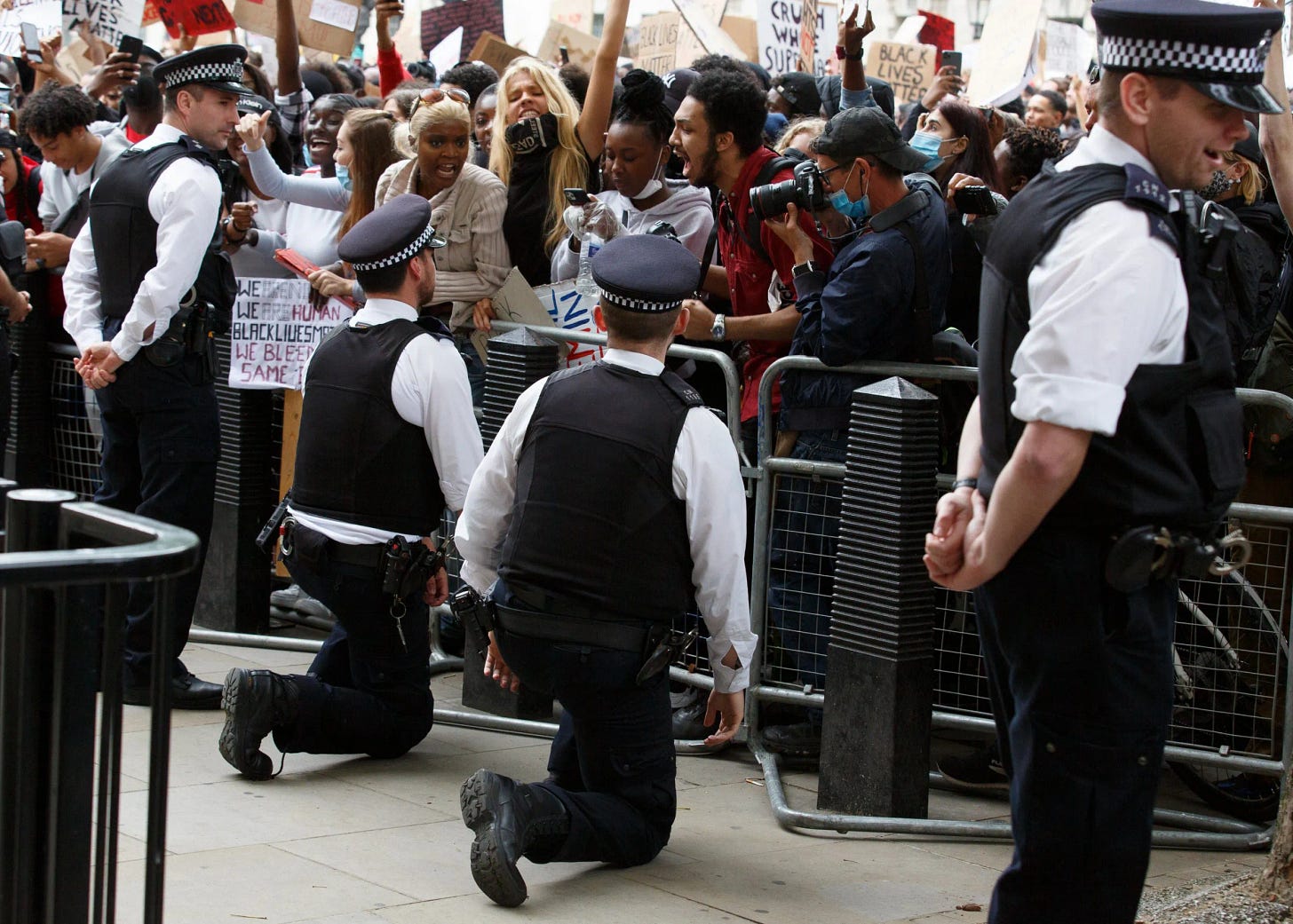
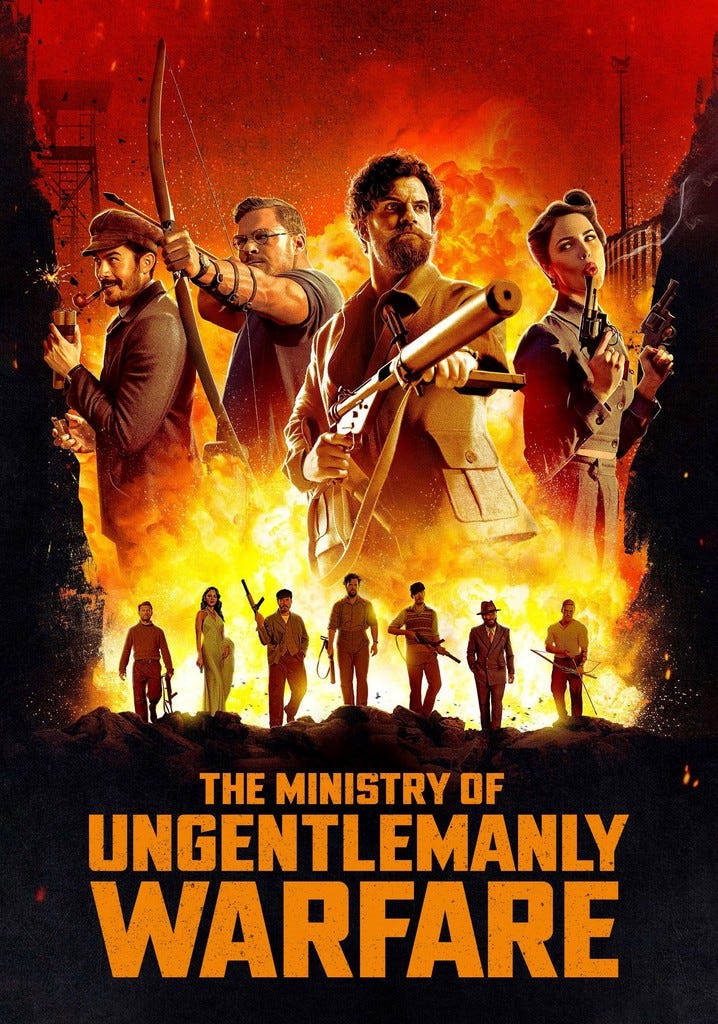
Excellent. As usual. However, these days there is absolutely zero chance of a Cop with a work based attitude getting anywhere near a rank high enough to even begin to make a difference. I doubt less than 1% of senior officers would be able to find their way to Court on foot or by public transport. Assuming that is, they had actually done some Police work at some time or were there to take the credit for the work of others.
From my point of view everything was less complex in the 70's and 80's. Want to put some people out in plain clothes on a ND burglary patrol? No problem. Likewise want to set up some OP's? Again, no problem, During the 80's and 90's it began to change driven by a desire for accountability, which is no bad thing, but it did lead to a lot of paperwork being generated to show that 'something was being done
There is the usual mention of a privatised police force, I am extremely wary of such a prospect, all the attempts at privatisation I have seen in the police have only added extra levels of bureaucracy and actively made things worse. Can you imagine any private organisation taking on the level of risks that would come with child protection or similar type investigations? The fact is the private sector would cherry pick what they would deal with and walk away from anything that was complex or risky.
Billy Dilly mentioned education and health, full disclosure: one son is a doctor and the other teaches in the private sector. The doctor says private medicine is great for elective type surgery (top tip- choose a private wing/floor on an NHS hospital with an A&E attached otherwise if anything goes wrong out of hours the response is very likely to be sub-optimal and you will likely end up in the A&E or ICU of an NHS hospital). The one who teaches in the private sector says they are ruthless is 'moving on' children who will not do well or are problematic. Of course there are independent schools that cater very well for children with SEN but they are expensive and rare.
There we go then, I'm a proponent of a mixed economy. Some things the state should do, other things the private sector should do. I'm pragmatic but the default option these days seems to be howling partisanship with no room for reasoned discussion.